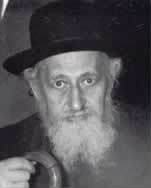Moshe was commanded to rewrite on a second set of tablets of stone the same as that which was written of the first set “that you broke” [1].
When Moshe saw the Children of Israel sin with the golden calf when he came down Mount Sinai with the first set of tablets, he indeed broke them. But why was it necessary to remind Moshe that he had broken the first set of tablets? If the intent was that he not make a repeat performance it would have been more appropriate to have warned him before descending Mount Sinai once the second tablets were complete. But he was being reminded before even writing them – so why did he need to be reminded at this stage?
Indeed our sages have expounded that Moshe was actually being commended for breaking the first set of tablets! [2]
But why on earth was Moshe commended for breaking them? And if it was indeed praiseworthy for him to have broken them, why were they given in the first place?
A certain Yeshiva Principal came before the great ‘Brisker Rav’, R’ Yitzchak Zev Soloveitchik zt”l, seeking guidance as to which of two scholars to employ at his yeshiva, both of whom were once students of the Brisker Rav’s father (R’ Chaim Soloveitchik). The Brisker Rav indicated his preference and when asked his reasoning he replied: “The one I did not select was only with my father during the writing of his novella, but the one I chose was also there towards the end when my father erased those sections he felt were not 100% clear. The lessons learned from this act of erasing are crucial to a first-rate teacher.”
Indeed, R’ Yaakov Orenstein, the Yeshiva Principal of the American branch of Yeshivas Nitra and then Yeshivas Bobov, used to say “a good teacher is not one who teaches many innovative novellas, but rather one who knows which ones to omit so as not to confuse his students!”
The Torah’s wisdom is infinite.
But a good teacher of Torah must (at least initially) teach his students accordingly: according to his abilities and strengths; their abilities and strengths; when; how and what to teach.
Moshe was supposed to teach the Torah and so, when he recognised that his students – the Children of Israel (throughout the generations) – were not (at least at that moment) sufficiently suited to the first set of tablets, and would be more suited to a second set, he acted accordingly.
And it is this that he was commended for.
Have a commendable Shabbos,
Dan.
Additional sources:
Stories: Glimpses of Greatness, p.114
[1] Shemos 34:1; Devarim 10:2
[2] Shabbos 87a. {Perhaps the words “asher shibarta” (“that you broke”) are expounded as such because they are superfluous – as indicated in the question above. Or perhaps since it would have sufficed to have written “sheshibarta” instead (the prefix “she” also meaning that), the word “asher” – also meaning “fortunate are you” (perhaps also from the root ‘yashar’ meaning ‘straight’ or ‘correct’) – is expounded ‘yasher (kochecha)’, meaning (loosely) ‘well done’.}
